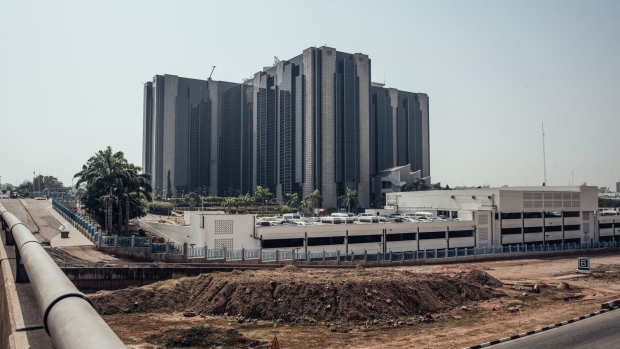Nov 24, 2020
Nigeria Central Bank Holds Key Rate, Expects a Short Recession
, Bloomberg News

(Bloomberg) -- Nigeria’s central bank held its benchmark interest rate to allow previous cuts to flow through the economy, saying a recession should be over by the end of the year.
All 10 members of the monetary policy committee who attended the two-day meeting voted to keep the rate at 11.5%, Governor Godwin Emefiele said Tuesday in a virtual briefing from the capital, Abuja. That matched the forecast of all seven analysts in a Bloomberg survey.
The pause following two cuts of 100 basis points each in 2020 signals that the central bank expects the nation’s second recession in less than four years for to be short-lived, echoing remarks by Finance Minister Zainab Ahmed on Monday. Africa’s largest economy contracted 3.6% in the third quarter from a year earlier after crude output dropped to the lowest since 2016.
Holding rates “will allow current policy measures to permeate the economy,” Emefiele said.
The twin impact of coronavirus lockdowns and the plunge in the price of oil hit the west African economy harder than most on the continent. That came on top of land borders that have been closed since last August in an attempt to curb smuggling and boost local production. This has weighed on Nigerian exports and on the supply of some food products, adding to inflation.
Although inflation has been above the central bank’s target band of 6% to 9% for more than five years, and quickened for a 14th straight month in October, this should start moderating in the medium term, according to the MPC. Food-price growth, that has been a key driver, is expected to ease, Emefiele said.
The committee kept the cash reserve requirement at 27.5%, held the liquidity ratio at 30% and retained the asymmetric corridor, which means the cost at which lenders borrow is at 100 basis points above the monetary policy rate and the return on their deposits at 700 basis points below the benchmark.
©2020 Bloomberg L.P.


